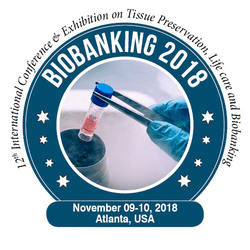
Kejin Hu
University of Alabama at Birmingham, USA
Title: Role of bromodomain extra terminal proteins in cellular reprogramming
Biography
Biography: Kejin Hu
Abstract
Pluripotent stem cells (PSCs) have differentiation potentials into any type of cells in our bodies and therefore hold great promise for regenerative medicine. The conventional PSCs are embryonic stem cells (ESCs) derived from the inner cell mass (ICM) of a pre-implantation embryo. The clinical application of ESCs is hampered by issues of ethical concern, technical limitation, a limited supply of human embryos, and non-autologous nature. PSCs can be induced from fibroblasts or other somatic cells by ectopic expression of a few transgenes, e.g. OCT4, SOX2, KLF4, and C-MYC. Induced pluripotent stem cells (iPSCs) have removed many problems associated with the use of ESCs. However, iPSC reprogramming still has problems of low efficiency, incomplete reprogramming, epigenetic memory of the starting cells, stochastic nature, immunogenicity, and reprogramming-associated mutagenesis. The molecular mechanisms of iPSC reprogramming remain poorly understood. My lab found that proteins of bromodomain extra-terminal (BET) family play different roles in iPSC reprogramming process. By screening a human cDNA library, we discovered that a short isoform of human BRD3, BRD3R, displayed reprogramming activity while other BET proteins lack reprogramming activity. BRD3R also gains mitotic activities, which may be partially responsible for its gained reprogramming activity. Interestingly, our further detailed study showed that chemical inhibition of BET proteins at low concentration enhanced iPSC reprogramming by three distinct BET inhibitors, while a high concentration of these BET inhibitors impairs iPSC reprogramming. At the same time, our RNA-seq data showed that such mild chemical inhibition of BET proteins erased fibroblast transcriptional program. Our published and unpublished data indicate sophisticated roles of BET protein in cellular reprogramming.

